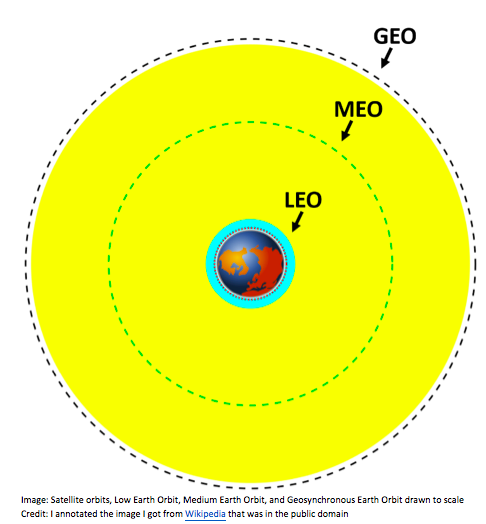Emily Calandrelli
This article is Part 1 of a 3-part series.
Twenty years ago less than one percent of the world was connected to the internet. In 2015, roughly forty percent of the global population can log on to the World Wide Web. For these people, the internet has become an essential medium for business development, communication, education, and innovation.
The UN has even declared internet access a basic human right.
Unfortunately, this right is not afforded to everyone.
Today, more than four billion people are left in digital darkness. High infrastructure costs, and cultural and language barriers make providing internet access to remote and rural areas complicated.
In just the past few years, however, corporate giants and individual entrepreneurs have invested big money to change this. Most of these efforts have focused on providing access to remote locations where traditional internet strategies are cost prohibitive.
The company formerly known as Google, for example, is tackling this challenge with balloons and drones.
Through Project Loon, Alphabet is perfecting high altitude balloons which are designed to be launched as a fleet and float around 60,000 feet, well above commercial air traffic, for more than one hundred days. Successful trials have been done in Australia, Chile, New Zealand and Brazil. Commercial services are projected to start as early as next year.

Through Titan Aerospace, which Google acquired in 2014, Alphabet hopes to provide internet using solar powered drones flying in the stratosphere (around the same altitude at Google Loon balloons). A recent crash this May poses a setback for this strategy, but a spokesperson for the venture has said that they “remain optimistic about the potential of solar-powered planes to help deliver connectivity.”

Facebook, who attempted to buy Titan Aerospace before Google placed a higher bid, ultimately acquired the competing high-altitude drone company, Ascenta.
This purchase is part of Facebook’s Connectivity Lab which is a team that works to identify new technologies to connect the world. This is related, but different than Facebook’s Internet.org which offers free internet content in communities that do have internet access, but users can’t afford it. This latest Connectivity effort led to the development of a new drone they’ve named Aquila (Latin for eagle), which was completed in July and ready for flight testing.
While the race to provide internet to remote locations is well underway, other, more ambitious players have their sights set on making broadband internet available to the entire planet.
[Broadband: Refers to “high speed” internet. Internet speed is measured in Mbps (megabits per second). The Federal Communications Commission has defined broadband within the US as 25 Mbps minimum download speed and 3 Mbps minimum upload speed.]
OneWeb, backed by Richard Branson, and Elon Musk’s SpaceX both plan to provide broadband internet to the world through low orbiting satellites. If they succeed, they could bring the remaining two thirds of the Earth online, changing economies on local, national, and global levels.
The Challenge of Connecting the World
Currently, companies provide internet service using technology that can be thought of in three separate categories: ground-based, air-based, and space-based.
Ground-based networks are created with physical cables such as those used by cable service networks (Cable network), telephone networks (Digital Subscriber Line or DSL), fiber optic cables (Fiber network), or wireless communication transmitted by towers (Long Term Evolution or LTE). Most people today receive internet through one or more of these ground-based networks.
Extending these strategies to other parts of the world can be difficult. Many communities don’t have anyone to put up enough capital to build the necessary infrastructure. The problem becomes worse in low density communities where the cost per user drastically increases.
These remote locations may be better serviced by air-based strategies like stratosphere flying balloons or drones. But even these air-based strategies can’t be used to cover the whole world due to relatively short flying times (on the order of months) and air space regulation issues.
Connecting the entire planet with one network is a job for a space-based strategy, specifically in Low Earth Orbit (also known as LEO, which is the space between 100 miles and 1,200 miles above the surface of the Earth).
There are currently companies providing internet access with space-based strategies, like ViaSat, but they place a small number of satellites in a higher orbit known as Geosynchronous Orbit (also known as GEO, which is the space that exists about 22,000 miles above the surface of the Earth), and they don’t provide it to globally. ViaSat, for example, has three satellites and only covers the US and Canada.
The benefit of placing an internet-providing satellite in GEO is that you can cover more of the Earth with fewer satellites. But it also costs more to send a satellite 22,000 miles up than it does to send it 1,200 miles up in LEO. And because GEO is farther away, you have more latency issues.
[Latency: The time delay for a data packet to transfer from a source to a destination. For example, the time it takes for data to be sent from a satellite to the end user.]

So to overcome these issues, a company will need to place hundreds of satellites into LEO. But developing satellites in bulk is not the way the space industry works. Companies typically design and build one highly customized (and highly expensive) satellite and find a highly coveted (and highly expensive) spot on a rocket launch to get it to the right orbit. Manufacturing hundreds of satellites and launching all of them is no trivial task.
Talk about high infrastructure costs.
However, with this in place, a company could provide low-latency broadband speed internet to anyone in the world with the right ground network. That’s a nice goal to work toward.
Failures of the Past
Connecting the planet in this way is no easy business and OneWeb and SpaceX aren’t the first to try.
The most notable venture was Teledesic which also planned to provide worldwide broadband internet via satellites in low Earth orbit (LEO). Teledesic, founded in the 1990’s and backed by Bill Gates, started with ambitious plans for a $9 billion 840-satellite constellation – more than the total number of satellites in space at that time. Unfortunately, during that same decade the telecommunications industry was essentially imploding.
Two companies founded in the 90’s, Iridium and Globalstar, launched 66-satellite and 48-satellite LEO constellations respectively in order to provide satellite phone and low-speed data connections. Both companies went bankrupt in the process.
Failed market expectations and bankruptcy filings from satellite-driven telecommunication companies forced Teledesic to scale back and eventually halt satellite construction all together.
So why are companies trying again now?
For one, satellite technology has gotten both smaller and cheaper. OneWeb’s satellites are said to be 150kg whereas Teledesic’s satellites were 800 kg. Lighter satellites lend to cheaper launch costs, which certainly help.
And two, there’s a big prize for the ultimate winner(s). As OneWeb’s CEO Greg Wyler has said, “We are solving a big problem for emerging markets, which is literally half the world, and the other half is connected only intermittently.” That’s what these people are fighting for – the ability to provide a new or better internet service to the entire world.
But more than anything, this is a business challenge, not a technological one. Both OneWeb and SpaceX will need to raise billions of dollars and create strategic partnerships with governments and communities around the world in order to succeed where others have failed.






























Comment